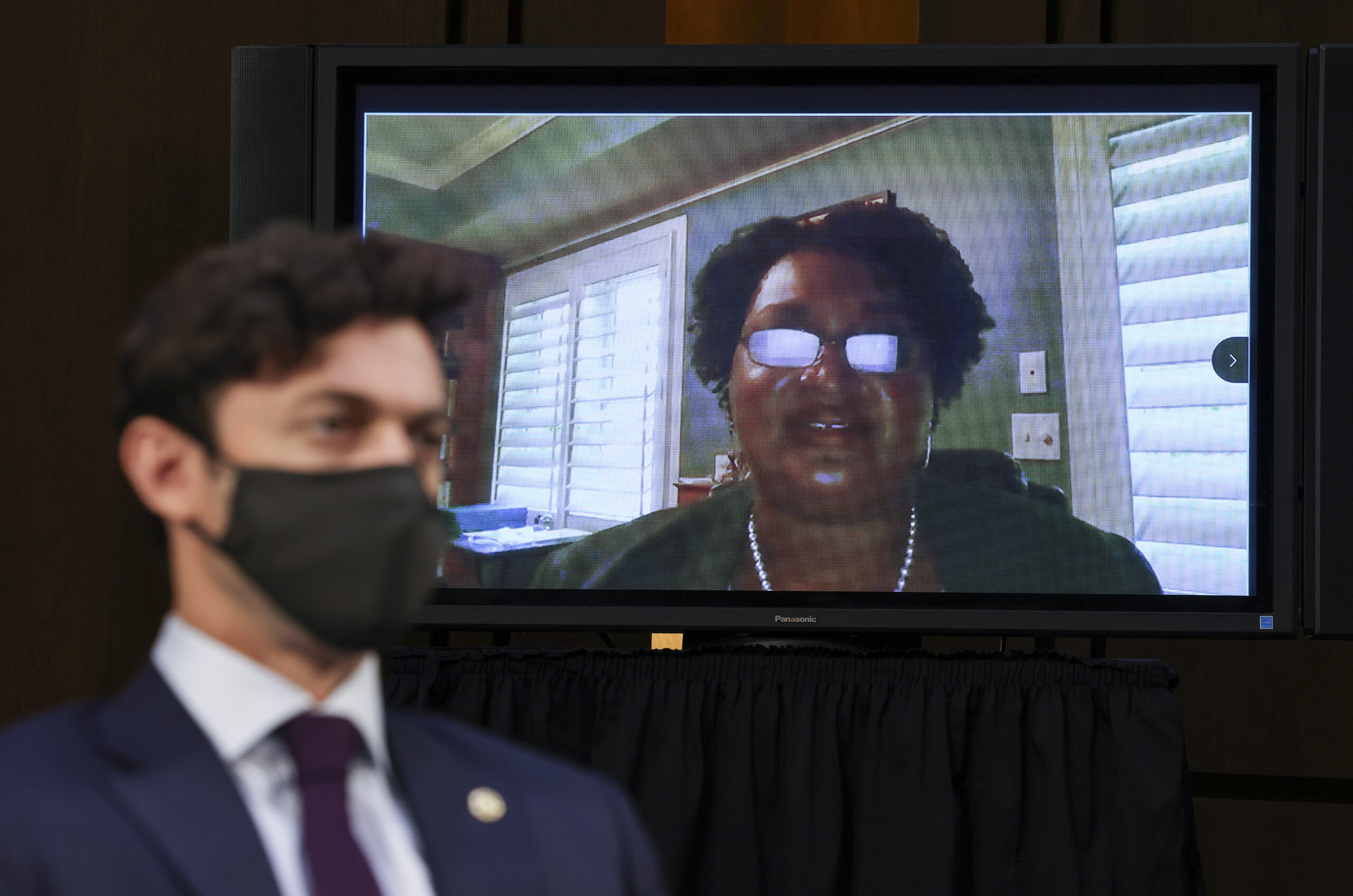Georgia Voting Law Dominates U.S. Senate Hearing

Stacey Abrams testifies remotely via video conference Tuesday as Sen. Jon Ossoff, D-Ga., listens during a Senate Judiciary Committee hearing on voting rights on Capitol Hill in Washington.
Evelyn Hockstein / Pool via AP
The partisan debate over Georgia’s voting law spilled into Congress on Tuesday when the Senate Judiciary Committee held a four-hour hearing focused largely on the state’s new law.
The U.S. House already passed a sweeping voting reform package, which the Senate is now considering, known as the “For the People Act.” It would standardize many components of election administration and preempt many state-level rules, including many of those in Georgia’s new law.
With just a 51-vote majority, it’s unclear if Senate Democrats have the votes to get their version through, but they made their case in committee, pointing to laws like Georgia’s as the reason why federal voting regulation is needed.
Republican senators, on the other hand, echoed Georgia Republicans in their defense of the new law as improving voting access and administration.
“Georgia has a long history, particularly since Republicans have been in charge since 2003 of expanding access to voting. SB 202 does no differently,” Republican state House Speaker Pro Temp Jan Jones testified to the committee.
“SB 202 is a forward-facing approach to elections, implementing measures to increase voter accessibility and fairness,” she said.
But former Democratic state House Minority Leader and voting rights activist Stacey Abrams said the law has “racist components.”
As an example, she pointed to its focus on absentee voting, a system expanded greatly by Georgia Republicans in the past. The new law replaces absentee ballots’ signature match process with new identification requirements.
“There is nothing that occurred in 2020 and 2021 to discredit that process, except that it finally worked for most voters, and in particular, voters of color for the first time in Georgia’s history successfully used it to actually help change the outcome of new election,” Abrams said.
Jones said new identification for absentee ballots merely match what is already required for in-person voting and that the new law is business as usual for the General Assembly.
“Since 2003, 59 elections bills have been passed by the Georgia General Assembly, at least one each of every year. After the 2018 elections, we had an elections bill that addressed some of the concerns expressed by Democrats,” she said.
“In this bill, after a worldwide pandemic, record turnout, a new election system, once again, we’re coming back to address concerns expressed by both Democrats and Republicans.”
In 2013 the Supreme Court’s Shelby County vs. Holder decision struck down some of the federal voting oversight that had existed since the civil rights era, especially in Southern states with histories of limiting access to voters of color. It’s that “preclearance formula” that advocates, including Abrams, are pushing to have reinstated.
“The dramatic proliferation of state-level voting laws across the country in 2021 demonstrates the urgent need for Congress to bring the [Voting Rights Act’s] preclearance formula into the modern era, to reinstate federal oversight over discriminatory voting practices and to strengthen and protect voting rights wherever suppression occurs,” Abrams said.
Democratic Sen. Raphael Warnock of Georgia also urged the committee to approve federal voting legislation.
“We may be tempted to dissect these bills as if analyzing them piece by piece makes them more rational. But that narrow analysis only obscures the larger unmistakable picture: this is a full-fledged assault on voting rights unlike anything we have seen since the era of Jim Crow,” he said.
“What these bills all share is that they are predicated on the ‘Big Lie’ that the outcome of our last elections were the result of fraud,” he said.








